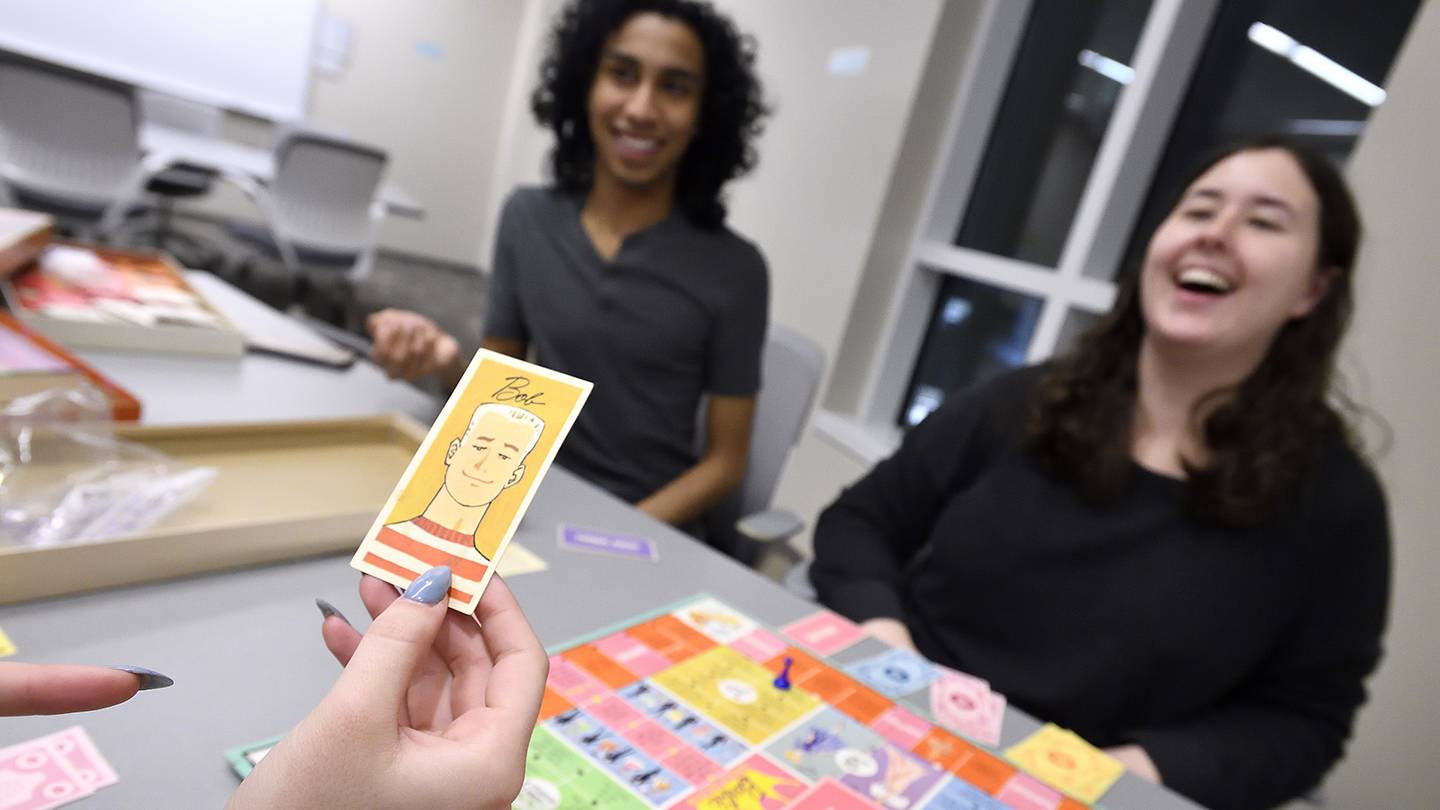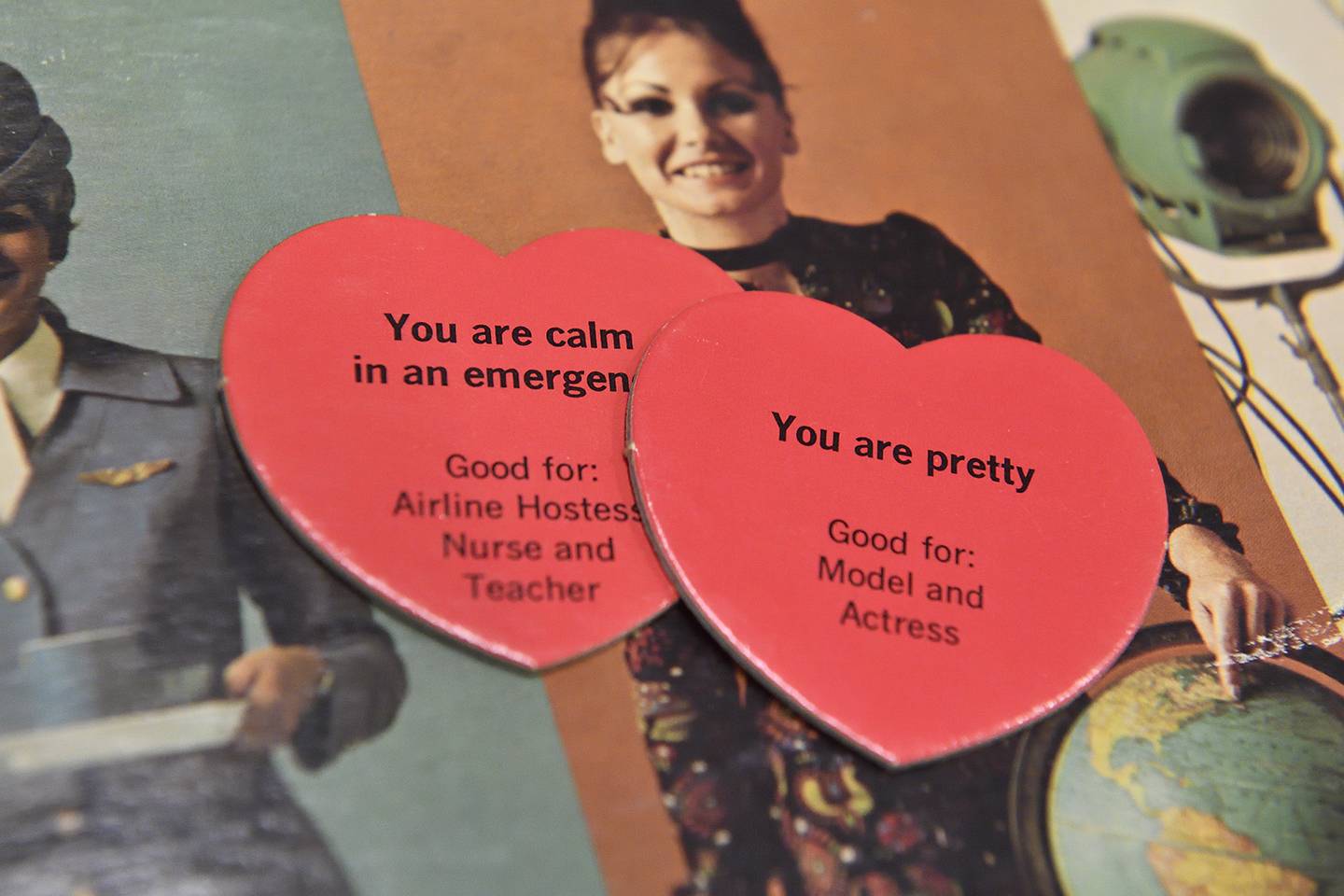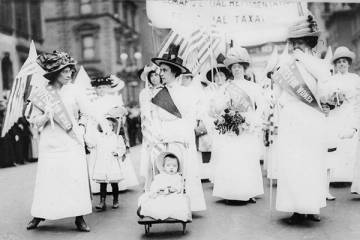"You forget to take your pill, thereby trapping one man into marrying you. Keep him married until he rolls a 4 or a 6."
That's an actual instruction from the board game Woman & Man: The Classic Confrontation, which passed as edgy commentary on the battle of the sexes when it debuted in 1971. Another card warns: "Men say you are overly competitive. Back 4."
Derisive groans and incredulous laughs filled the Special Collections in the Milton S. Eisenhower Library Wednesday night as students played 13 retro games as part of the second annual Vintage Game Night at Johns Hopkins. These games, targeted toward girls and women, date from 1909 to 1990 and were displayed as a Women's History Month tribute.

Image credit: Will Kirk / Johns Hopkins University
"It's interesting to see how much has changed but also how much hasn't," said Heidi Herr, outreach librarian for Special Collections, who organized the event.
In one room, a group of Hopkins undergraduates clamored around the most popular game of the evening: 1961's Barbie: Queen of the Prom.
"I'm voted the most popular girl in the class. I can take any boy who's not taken," one student read from her card.
Nearby, the 1972 game What Shall I Be? offers six career futures for girls: ballet dancer, stewardess, college student, model, nurse, and actress. A similarly themed game from two decades later—Careers for Girls (1990)—updates those options as teacher, supermom, fashion designer, rock star, and animal doctor.
Herr ordered the games online from eBay and from antiquarian book dealers. They'll end up in the Johns Hopkins University collection of vintage games and toys, which contains ephemera from many different countries dating back to 1825. Items include a Yiddish proverb game, fortune-telling cards from 1910, and first-edition Ouija boards and Clue games. All items can be checked out from Special Collections and used in the library, Herr said.

Image credit: Will Kirk / Johns Hopkins University
The collection has drawn interest from students in the Game Design and Book Arts programs at the Maryland Institute College of Art, some of whom were present Wednesday, including Game Lab manager Matteo Uguzzoni. Herr, who has hosted instructional sessions in both programs, made the connection between Hopkins and MICA after speaking at MICA's first Game History Conference, dubbed ArchiveCon.
Herr said the vintage night was a "visual and fun" way to experience the Hopkins collection—and one that ties in nicely with the university's Women's Suffrage Centennial Commemoration.
The oldest game featured, Pank-a-what? Pank-a-Squith, is a pro-women's suffrage board game, where players strive to avoid the pitfalls of suffragist life—such as police encounters—in order to bombard the House of Commons and achieve votes for women. Ironically, this game, which was originally produced in 1909, was probably the most progressive of the night.
Posted in Arts+Culture, Student Life, Politics+Society
Tagged special collections, women's history month, women's suffrage, board games










